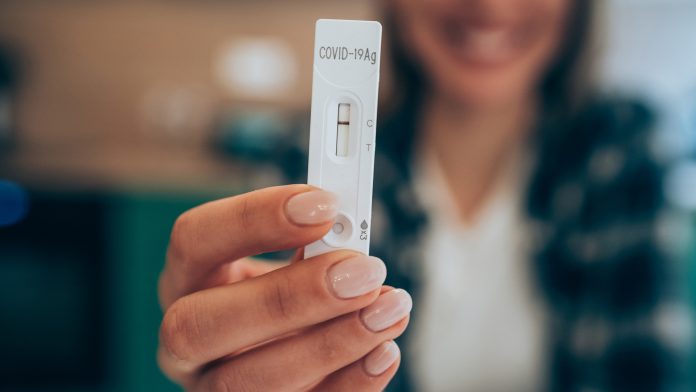
New laboratory research from Oregon Health & Science University revealed more than one path toward robust Covid immunity.
A new study has found two forms of Covid immunity – breakthrough infections following vaccination or natural infection followed by vaccination – provided around equal levels of enhanced immune protection.
“It makes no difference whether you get infected and then vaccinated, or if you get vaccinated and then a breakthrough infection,” said co-senior author Fikadu Tafesse, PhD, assistant professor of molecular microbiology and immunology in the OHSU School of Medicine. “In either case, you will get a really, really robust immune response — amazingly high.”
The study was published online today in the journal Science Immunology.
Covid immunity and infection
The new research followed the OHSU study, published in December, that noted extremely high levels of the immune response, following breakthrough infections provides ‘super immunity’. The research teams’ previous study was the first to use multiple live SARS-CoV-2 variants to measure cross-neutralisation of blood serum from breakthrough cases.
The new study found that it does not matter whether someone gets a breakthrough infection or gets vaccinated after a natural infection. In both cases, the immune response measured in blood serum revealed antibodies that were equally more abundant and more potent — at least ten times more potent — than immunity generated by vaccination alone—resulting in more intense Covid immunity.
The researchers noted that the study was carried out before the emergence of the Omicron variant but expected the hybrid immune responses would be similar.
“The likelihood of getting breakthrough infections is high because there is so much virus around us right now,” Tafesse said. “But we position ourselves better by getting vaccinated. And if the virus comes, we’ll get a milder case and end up with this super Covid immunity.”
Studying infected vaccinated people
Researchers recruited a total of 104 people, all OHSU employees who were vaccinated by the Pfizer vaccine, and then carefully divided them into three groups: 42 who were vaccinated with no infection, 31 who were vaccinated after an infection, and 31 who had breakthrough infections following vaccination. Controlling for age, sex and time from vaccination and infection, the researchers drew blood samples from each participant then exposed the samples to three variants of the live SARS-CoV-2 virus in a Biosafety Level 3 lab on the OHSU Marquam Hill campus.
They found both groups with ‘hybrid immunity’ generated greater levels of Covid immunity when compared with the group that was vaccinated with no infection.
Endemic Covid
With the Omicron variant circulating across the globe, the new findings suggest each breakthrough infection potentially brings the pandemic closer to the end.
“I would expect at this point many vaccinated people are going to wind up with breakthrough infections — and hence a form of hybrid immunity,” said senior co-author Bill Messer, M.D., PhD, assistant professor of molecular microbiology and immunology, and medicine (infectious diseases) in the OHSU School of Medicine.
The OHSU scientists have not tested multiple rounds of natural infection; however, many people will likely find themselves in that category, given that millions of people in the United States and around the world remain entirely unvaccinated. With the spread of the highly contagious Omicron variant, many unvaccinated people who were previously infected are likely to confront the virus again.
For that group, previous research revealed a much more variable level of immune response than vaccination.
Messer said: “I can guarantee that such immunity will be variable, with some people getting equivalent immunity to vaccination, but most will not,” he said. “And there is no way, short of laboratory testing, to know who gets what immunity. Vaccination makes it much more likely to be assured of a good immune response.”
























